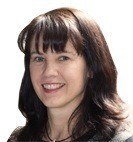- Your accountant needs to be licensed by July next year.
- Keep your trustee and director details current.
- Know how to defend the sector.
Every year, SMSF experts gather together to discuss the trends in the industry and what’s coming up for the sector. Last week 1500 accountants, advisers, lawyers and auditors that specialise in DIY superannuation were in Melbourne for the annual SMSF Association conference.
The topics and themes discussed at the conference are a useful insight for the trustee into what might be about to happen when it comes to things like regulation. For example, the ATO’s new approach to dealing with breaches – discussed in our story on Friday was revealed at the conference. Don’t be too surprised if you get a call from the ATO and, more importantly, don’t forget to be nice.
Here are three key messages from the conference:
1) Accountant licensing
The conference brought together the major regulators in the sector, who had some words of advice, particularly for accountants and auditors. One of the major issues that accountants need to deal with at the moment is licensing.
With the removal of the accountants exemption on SMSFs on 1 July, 2016 all accountants need to have a licence – even if that be a limited AFS licence – on that date if they want to continue providing any advice on SMSFs.
All accountants need to decide how they want to approach licensing and they need to work this out by the end of June next year. That might sound like a long way off but it can take more than 12 months to get ready for licensing and deputy head of the Australian Securities and investment’s Commission (ASIC) Peter Kell said at the conference that they had only received 105 applications so far – from a total expected 10,000.
“Of 105 applications we have approved 44,” he said.
This is important for the SMSF trustee because there might be a real chance that your accountant will no longer be licensed to give advice on SMSFs and for many SMSFs, this is their main source of information. So start the conversation with your accountant about what they’re planning on doing now.
2) Trustee details
The Australian Taxation Office, through director SMSF income tax and regulator programs, Nathan Burgess, also made a special request for SMSF trustees to keep their trustee and director details updated with the regulator.
“It’s really important that the ATO know who the trustees are, who the members are,” he said.
“You actually have to tell us via the Australian business register.”
These details need to be up-to-date for rollovers from APRA regulated funds into your SMSF but Burgess also warned that there may come a time in the future when these details have to be current for contributions to be made into the SMSF.
3) Myth busting
Head of policy, technical and educational services at AMP SMSF, Peter Burgess, busted some of the major myths in his session.
“It’s important we are all able to appropriately defend this sector,” he said.
For example there have recently been calls by some in the superannuation industry, outside of SMSFs, for prudential oversight, in addition to the ATO regulator.
But Burgess said: “It makes no sense to me that would you have a prudential supervisor to ensure that trustees are keeping their promises to themself.”
In response to the criticism that SMSFs do not pay their fair share of tax he also said: “If the claim is that SMSFs are not paying tax then I say they’re not very good at it.”
He also said that SMSF trustees have shown that they do have adequate knowledge of their roles and their risks. There may be a relatively large number of breaches of the rules, which he said wasn’t that good, but he expects the new regime to help improve compliance.
“With the introduction of these penalties, we should start seeing the number of breaches come down,” he said.
Important: This content has been prepared without taking account of the objectives, financial situation or needs of any particular individual. It does not constitute formal advice. Consider the appropriateness of the information in regards to your circumstances.

